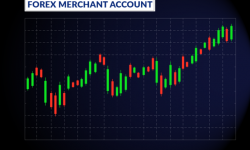
Merchant and recorded underpinnings and use
A merchant is a person who trades items made by others, especially one who trades with outside countries. All things considered, a merchant is any person who is related to business or trade. Merchants have worked anyway long because industry, business, and trade have existed. In sixteenth-century Europe, two extraordinary terms for merchants emerged: meerseniers implied neighborhood intermediaries like prepares and food merchants and Koopman high risk merchant account insinuated merchants who chipped away at an overall stage, getting and conveying items over tremendous distances and offering added-regard organizations like credit and cash.
The circumstance with the merchant has changed during different occasions of history and among different social orders. In present-day times, the term merchant has rarely been used to suggest a money supervisor or someone undertaking works out business or current to take advantage, pay, arrangements, and pay to utilize a blend of human, financial, academic and real capital with the ultimate objective of filling monetary development and improvement.

Merchants have been alluded to anyway long individuals have been busy with trade a lot. Merchants and merchant networks worked in outdated Babylonia and Assyria, China, Egypt, Greece, India, Persia, Phoenicia, and Rome. During the European middle age time period, a quick improvement in return and exchange incited the rising of a rich and astonishing merchant class. The European season of divulgence opened up new trading courses and gave European buyers permission to a much more broad extent of product. From the 1600s, the stock began to travel significantly further distances as they found their heading into geographically dispersed business places. Following the opening shot of Asia to European trade and the disclosure of the New World, merchants imported items over incredibly critical distances: calico texture from India, porcelain, silk and tea from China, flavors from India and South-East Asia and tobacco, sugar, rum and coffee from the New World. By the eighteenth century, another kind of maker merchant had started to emerge and introduce vital methodologies ending up being unmistakable.
Recorded underpinnings and use :
The English articulation, merchant comes from the Middle English, marchant, which itself began from the Vulgar Latin mercatant or mercatans, outlined from present participle of mercatare ‘to trade, to traffic or to deal in. The term suggests an associate, yet can similarly be used with a specific qualifier to propose a person who deals in a given brand name, for instance, speed merchant, which implies someone who likes fast driving; upheaval merchant, which implies a social affair of melodic performers; dream merchant, which insinuates someone who sells cheerful visionary circumstances; merchant of war, which suggests disparagingly to protectors of war.
The Dutch articulation, Koopman, ended up being to some degree more fluid during the sixteenth century when Antwerp was the most overall market town in Europe. Two extraordinary terms, for a merchant, began to be used, meerseniers implied neighborhood merchants including mixture punchers, merchants, sellers of dairy things and dial back holders, while the substitute term, Koopman, suggested the people who traded items or credit for a gigantic extension. This separation was imperative to disconnect the step-by-step trade that everybody appreciated from the rising places of vendors who took up their places on a world stage and were seen as extremely far away from ordinary experience.
